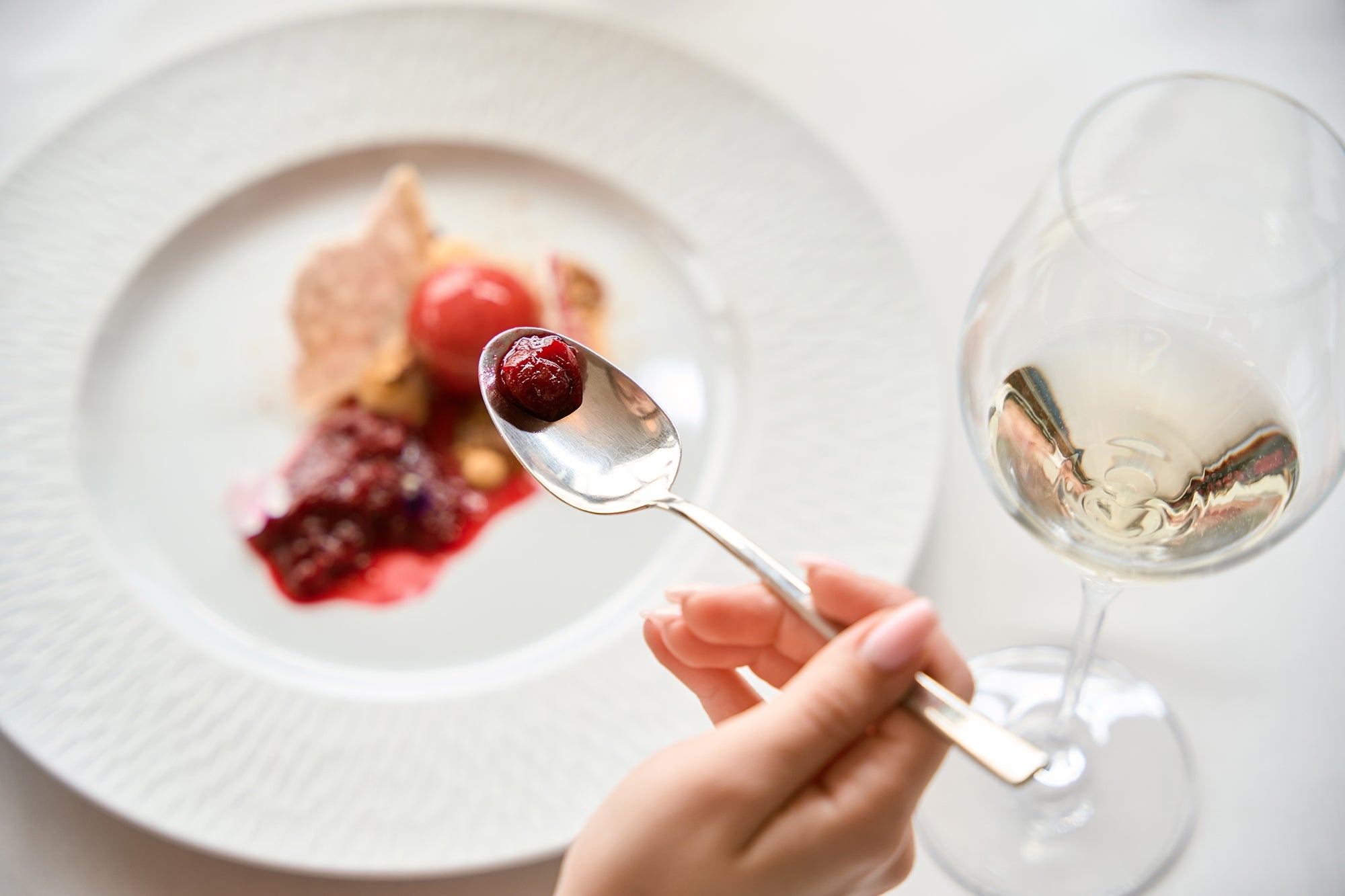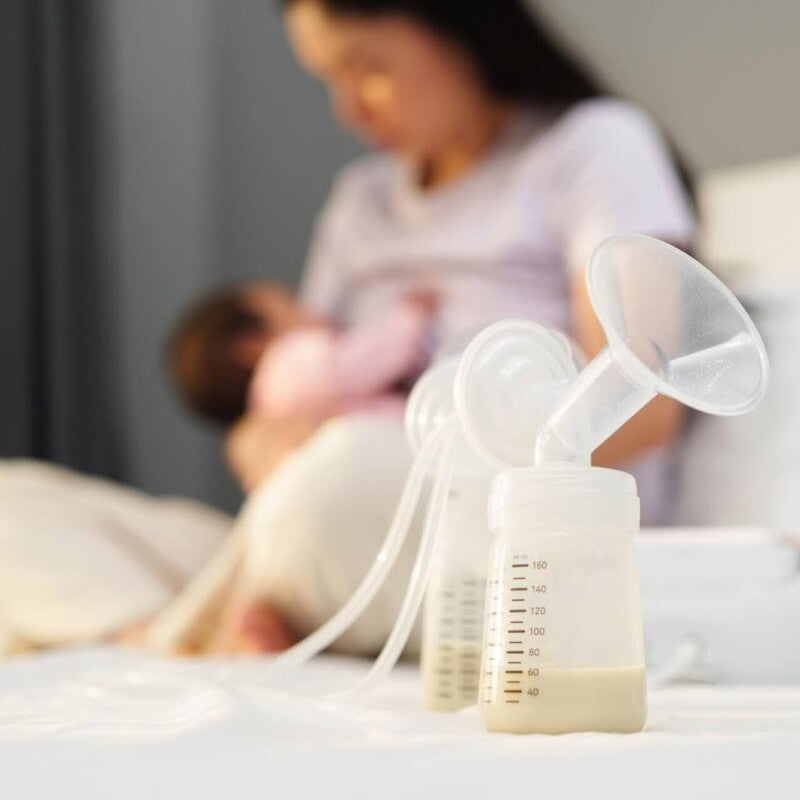Pregnancy is an incredible journey, and what you eat plays a vital role in supporting your health and your baby's development. While most foods are perfectly safe, some need to be avoided or limited to protect you both from potential risks. Understanding which foods to steer clear of isn't about restriction - it's about making informed choices that give your little one the best possible start.
This guide follows Australian dietary guidelines to help you navigate pregnancy nutrition with confidence. At Perdays, we're committed to supporting Australian mums-to-be with trusted, evidence-based nutrition advice and quality prenatal supplements that complement a healthy diet.
Always consult your healthcare practitioner if you have questions about your pregnancy nutrition and what is safe for you and your baby or before starting any supplements.
Why It's Important to Avoid Certain Foods During Pregnancy
During pregnancy, your immune system naturally changes, which can make you more susceptible to foodborne illnesses. Infections like Listeria, Salmonella, and Toxoplasmosis can have serious consequences during pregnancy, potentially affecting your baby's development or leading to complications.
Certain foods can also contain substances that may interfere with your baby's growth. High levels of mercury can impact neurological development, while alcohol can cause lasting developmental issues. By being mindful about your food choices, you can significantly reduce these risks and actively support a healthy pregnancy.
List of Foods to Avoid During Pregnancy
Unpasteurised Dairy Products and Soft Cheeses
Unpasteurised milk and soft cheeses like brie, camembert, feta, and blue cheese can harbour Listeria bacteria, which can cross the placenta and potentially harm your baby.
Stick to hard cheeses like cheddar, Swiss, and parmesan, and always choose pasteurised dairy products. You can enjoy soft cheeses if they're made from pasteurised milk and cooked until steaming hot in dishes like baked pasta.
Raw or Undercooked Meat, Eggs, and Poultry
Raw or undercooked animal products can contain Salmonella and Toxoplasmosis. Cook all meat, poultry, and eggs thoroughly - use a food thermometer to ensure meat reaches safe temperatures (75°C for poultry, 71°C for minced meat). Eggs should be cooked until both white and yolk are firm, meaning no runny yolks, raw cookie dough, or homemade mayonnaise.
Certain Fish High in Mercury
While wild-caught fish provides excellent omega-3 fatty acids and protein, avoid high-mercury varieties like shark (flake), swordfish, marlin, and orange roughy.
Processed Meats (Cold Cuts, Deli Meats, Hot Dogs)
Pre-packaged cold cuts, deli meats, and hot dogs can be contaminated with Listeria. If you're craving these foods, heat them until steaming hot (above 75°C). Alternatively, choose freshly cooked meat prepared at home and consumed immediately.
Caffeine and Energy Drinks
Australian guidelines recommend limiting caffeine to less than 200mg per day - roughly one to two cups of coffee or three to four cups of tea. Energy drinks should be avoided completely as they contain high caffeine levels plus other stimulants. Try decaffeinated options, pregnancy-safe herbal teas, or sparkling water with fruit instead.
Alcohol
There is no known safe level of alcohol consumption during pregnancy. Alcohol crosses the placenta and can cause foetal alcohol spectrum disorders (FASD), leading to physical, behavioural, and learning difficulties. The safest choice is to avoid alcohol completely throughout pregnancy and while breastfeeding.
Foods to Limit, Not Completely Avoid
Some foods don't need complete elimination but should be enjoyed in moderation. Certain herbal teas may not be suitable - limit licorice root tea and check with your healthcare provider about peppermint tea, especially in early pregnancy.
High-sugar processed foods should be limited, as excessive consumption can increase gestational diabetes risk. However, it's important to note that gestational diabetes is influenced by many factors including genetics, hormones, and overall health - not just diet alone. If diagnosed, working closely with your healthcare practitioner is mandatory to manage it safely.
Similarly, limiting deep fried foods and processed snacks, will help reduce your intake of damaging trans fats and artificial additives. Focus on seasoning your meals with herbs and spices and home-made dressings. Most commercial salt contains added anti-caking agent, so opt for Celtic salt which is rich in trace minerals.
Safe and Healthy Alternatives
Making smart swaps is easy. Replace soft cheeses with hard cheeses, swap raw fish in sushi for cooked options like tempura prawn rolls and ensure they have been made fresh within the past 30 minutes, and choose thoroughly cooked eggs for breakfast.
Focus on building your meals around whole foods: high quality well-cooked protein (beef, lamb, chicken, fish, eggs), fresh vegetables, nuts, legumes, whole grains, and healthy fats (cold-pressed hemp or olive oil, grass-fed butter). For calcium, enjoy pasteurised milk, yoghurt, hard cheeses, fortified plant milks and nut butters. Iron-rich foods like red meat, lentils, spinach, and fortified cereals will help support iron levels, especially when paired with vitamin C-rich foods to boost absorption.
Australian Dietary Guidelines on Foods to Avoid in Pregnancy
The Australian Dietary Guidelines and Food Standards Australia New Zealand provide comprehensive advice for pregnant women, emphasising avoiding high-risk foods for foodborne illness, limiting caffeine, and completely avoiding alcohol. They also recommend proper food safety practices like hand washing, keeping your fridge below 5°C, and consuming leftovers within 24 hours.
Role of Supplements When Diet Isn't Enough
Even with careful planning, meeting all nutritional needs during pregnancy can be challenging, especially when certain foods are off limits. Quality prenatal supplements become valuable for key nutrients like folate (essential for preventing neural tube defects), iron (to support blood health), calcium (for baby's bone development), and vitamin D (for immune function).
At Perdays, our prenatal supplements are specifically formulated to complement a healthy Australian diet, providing the nutrients you and your baby need most. Always consult your healthcare practitioner before starting any supplements during pregnancy and ensure they are monitoring your nutrient levels throughout each trimester.
Frequently Asked Questions (FAQs)
What should I know about food safety during pregnancy?
Practice good food hygiene: wash hands thoroughly, keep raw and cooked foods separate, refrigerate leftovers promptly, and clean your fridge regularly. Always check use-by dates.
Can I eat smoked fish during pregnancy?
Smoked fish should be avoided unless cooked until steaming hot in dishes like pasta or quiche. Ready-to-eat cold smoked fish carries a Listeria risk.
What are high risk foods during pregnancy?
The highest-risk foods include unpasteurised dairy, soft cheeses, deli meats, pâté, raw or undercooked meat and eggs, raw seafood, pre-prepared salads, and rockmelon. Also avoid high-mercury fish and any alcohol.
Are herbal teas safe during pregnancy?
Many herbal teas are safe in moderation, including ginger and chamomile. Avoid teas containing licorice root and always check with your healthcare provider if unsure.
Conclusion
Navigating food choices during pregnancy might feel overwhelming at first, but knowledge is power. By avoiding high-risk foods and making simple swaps, you're protecting your health and supporting your baby's development.
At Perdays, we're here to support you every step of the way with trusted nutrition guidance and premium prenatal supplements designed for Australian mums-to-be.
Find balance with a varied, nutrient-rich diet filled with safe whole foods, and use quality prenatal supplements to fill nutritional gaps. Most importantly, reach out to your healthcare practitioner with questions - they can provide personalised advice for your pregnancy journey.
Here's to a healthy, nourished pregnancy!
References:
https://www.nhs.uk/pregnancy/keeping-well/foods-to-avoid/
https://www.foodauthority.nsw.gov.au/consumer/life-events-and-food/pregnancy/foods-to-eat-or-avoid-when-pregnant
https://www.nidirect.gov.uk/articles/foods-avoid-pregnancy








